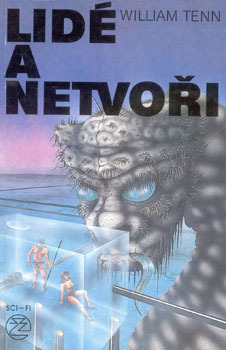What do you think?
Rate this book


196 pages, Paperback
First published January 1, 1968

the blood-sucking Draculas, the packs of vicious police dogs, the bug-eyed men from Mars, and, worst of all, the oil-seeking wildcats who drilled for all eternity from one burrow to another. (174)
The group of young men lounging against the wall of his band's burrow were tossing laughter back and forth between them. (13)One character, trapped in a Monster prison, facing a horrible death, dryly observes "The way I see it, there's no real future here for an ambitious young man." (208)